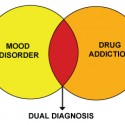Feds fail to use effective drug treatment plans in prison
Despite 20 years of scientific evidence showing that drug treatment programs work, the feds fail to offer enough of them to prisoners, according to a new study. Currently 7.1 million adults – over 2 percent of the population — in the U.S. are locked up or on probation; about half of them suffer from some kind of addiction—heroin, alcohol, crack, crystal meth, you name it—but only 20 percent of those addicts actually get effective treatment, say researchers from the National Institute on Drug Abuse (NIDA) at the National Institutes of Health in Bethesda, Md.
“For every dollar that you spend on treatment of substance abuse in the criminal justice system, it saves society on average four dollars,” says study co-author NIDA director Nora Volkow, a psychiatrist.
Among the studies Volkow and her colleagues reviewed: one of heroin addicts treated with methadone in prison, a treatment program that they continued when they were released. That study found that addicts who received no treatment were seven times more likely than their rehabbed compeers to become addicted to heroin again once back on the streets and three times more likely to commit a crime and land back in prison.
The rehab programs save money that otherwise will likely be spent on re-incarceration of drug addicts and treatment of psychiatric disorders and diseases such as HIV or AIDS that they may contract from dirty needles used to satisfy their addictions, Volkow says. “Many people with addiction also have psychiatric disorders,” she says, noting that recreational drug use often exacerbates the problem. (In fact, more mentally ill people are housed in prisons than psychiatric hospitals in the U.S. “The Los Angeles County jail, with 3,400 mentally ill prisoners, functions as the largest psychiatric inpatient institution in the United States,” according to a 2003 report by The New York Times.)
Volkow stressed the rehab programs only work if continued after addicts are released from lockups.
“Addiction is a chronic disease. …For treatment to be effective, you have to provide continuing care,” she says. “In some instances, some patients have to maintain [treatment] for several years.”
source: Scientific American

